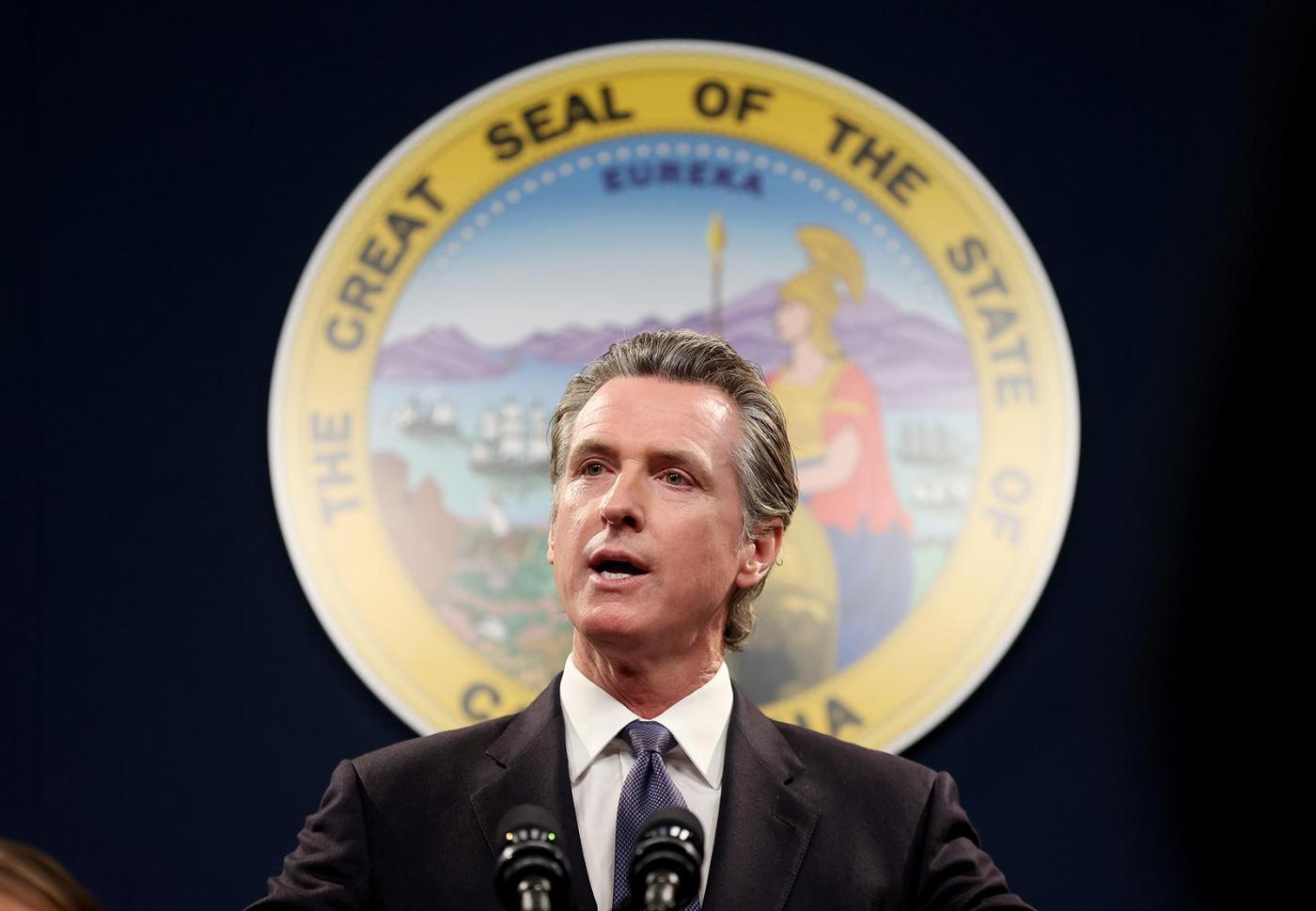
‘Why not us?’ Nannies, housekeepers win labor protections in some states
By Kevin Hardy, Stateline.org
When she first started working as an au pair, Edy Dominguez earned less than the minimum wage and went without paid sick time or overtime pay for extra-long weeks.
That’s because domestic workers, including nannies, housekeepers and home health workers, have historically been excluded from the basic labor protections most workers enjoy.
“There are standards in every other industry,” she said. “Why not us?”
After a decade of domestic work, Dominguez became an organizer for the Fair Work Center, a labor advocacy group in Washington state that won a victory in 2019 when Seattle implemented an ordinance guaranteeing minimum wage, meal periods and paid rest breaks for domestic workers. Now, advocates are pushing for new statewide legislation that would ensure minimum wage and sick time and require written agreements between employers and workers.
“I know what it is to be unprotected and alone in this industry,” Dominguez said. “There’s no co-workers.”
Related Articles
US stock markets to remain closed in honor of Jimmy Carter on National Day of Mourning
Got money goals for the New Year? Stay on track with these tips
US and Boeing investigators examine the site of a deadly South Korean plane crash
Biden agrees to stop selling off border wall surplus
Trump backs Johnson’s return as Speaker
If advocates are successful, Washington would join a dozen Democratic-leaning states and several cities that have added new protections for domestic workers. Efforts in those places did not face widespread opposition, though they raised some concerns about privacy and overregulation of workers in private homes.
In 2010, New York became the first state to pass a Domestic Worker Bill of Rights, guaranteeing overtime pay, at least one day off per week and protections against racial and sexual harassment. Since then, 11 other states have passed similar laws, as have Philadelphia, Seattle and Washington, D.C., according to the National Domestic Workers Alliance.
Congress is unlikely to pass national standards anytime soon. President-elect Donald Trump has promised mass deportations of immigrants — who make up a disproportionate share of domestic workers — and he and the GOP-dominated Congress almost certainly would be cool to new regulations designed to protect them.
Federal labor laws for decades exempted domestic workers from many safeguards, including a minimum wage, civil rights protections and workplace safety standards. These exclusions were rooted in racism and sexism, said Zoë West, a senior researcher at The Worker Institute at Cornell University who has studied the industry and operated training programs to educate workers about their rights.
Historically, domestic work has largely been done by Black and immigrant women, West said, and that work — cleaning, child care and the like — has long been viewed as “women’s natural work.”
“There’s a very persistent, strong perception that this isn’t real work,” she said.
Some of the new state and local legislation has mandated that domestic workers are paid overtime and at least the state or city minimum wage, while other laws have gone further, ensuring protections such as paid time off.
But new laws are just the first step.
“[Y]ou still have this enforcement question,” West said. “Across all kinds of low-wage work — not just domestic work — there’s a lot of challenges in enforcing labor law.”
Many domestic workers are privately employed by families, making it difficult to educate both employers and workers about new protections. And domestic workers, who are sometimes paid cash without any formal work agreement, can be particularly vulnerable to retaliation.
In Philadelphia, which approved new domestic worker protections in 2019, some workers who pushed employers to honor newly won rights such as lunch breaks or contracts were fired, said Aurora Munoz, the Pennsylvania organizing manager for the National Domestic Workers Alliance.
The organization has since launched an anti-retaliation campaign and is pushing the Philadelphia City Council to approve new legislation next year to prevent retaliation and beef up enforcement.
Last year, Philadelphia received six complaints regarding domestic worker protections; five of those cases were closed. The city’s labor department could not be reached for comment.
“If we enforce it to the T, then it will be really amazing and beneficial for not just domestic workers, but a lot of low-wage workers,” Munoz said.
‘People are paying attention’
For New Jersey state Sen. Britnee Timberlake, the story of domestic work is the story of her family.
Her grandmother worked as a so-called baby nurse and house cleaner. When she relocated to the Northeast from North Carolina, she found domestic jobs for other family members moving North.
Timberlake, a Democrat, sponsored legislation requiring meal breaks, protection from discrimination and the right to written contracts for domestic workers.
“One of my only regrets with the bill is that I did not name it after her,” she said of her grandmother. “This is something that is a part of my history and a part of my fabric.”
Timberlake said the legislation, introduced in 2022 and enacted earlier this year, aligns with broader efforts to provide protections for workers who aren’t in unions.
Business groups opposed the bill, saying it would unfairly overburden employers, the New Jersey Monitor reported.
The New Jersey Business & Industry Association pushed for some amendments that were added to the bill, including removal of a provision that would have mandated an extra hour of pay in situations where the employer cannot provide a meal or rest period. In a legislative update on the group’s website, Vice President of Government Affairs Elissa Frank said the changes “successfully strike a balance between providing flexibility for employers to manage their workforce according to business needs and ensuring certain protections for employees.”
Now, Garden State advocates are working to ensure both workers and employers know about the new law, said Evelyn Saz, the lead New Jersey organizer with the National Domestic Workers Alliance.
Saz came into domestic work after fleeing war in her native El Salvador for the United States, where she struggled to find work because she did not speak English and had a foreign university degree.
“I took any opportunity I could as a single mother to support my family,” she wrote in an email to Stateline translated into English by a co-worker at her alliance. “This work can’t stop now. We need to make sure that domestic workers are fully informed about their rights and are able to enforce them.”
Traditional labor organizing focuses on a single geographic location: a hotel or factory with a broad group of workers and a single employer. But that’s not possible with domestic workers, said Ben Fuller-Googins, deputy director of Carroll Gardens Association, a neighborhood organization in Brooklyn that advocates for affordable housing, worker rights and other issues.
“You don’t know how many domestic workers there are, where they work,” he said. “There’s one employer per worker.”
That’s led his organization to aim to educate workers and employers across the entire Carroll Gardens neighborhood about the state’s protections for domestic workers.
“Our approach is that, generally, employers want to do the right thing but are not equipped with the resources and guidance they might need,” he said.
The New York State Department of Labor has conducted 840 investigations into potential violations of the law since 2010, when the law was enacted.
Kenya Williams, who’s been a nanny in New York for 26 years, said she was only recently informed of her rights when a member of the Carroll Gardens group approached her in a local park. Before that, she said, she generally took whatever pay and conditions were offered to her and didn’t know to ask about holiday or overtime pay.
“Things are slowly getting better,” she said. “I think we are making improvements in our industry and people are paying attention.”
Is the home a workplace?
By its nature, domestic work can be informal.
With no human resources department at hand, families will often ask friends what they pay their nannies or Google how to hire a housekeeper, said Stacy Kono, director of Hand in Hand, a national group representing employers of domestic workers.
“In many ways, the first barrier we often face is people don’t even realize they’re employers,” she said.
While some employers do not provide benefits or pay fair wages, Kono said many want to do the right thing for those who work in their homes.
“We haven’t seen organized employer opposition to the efforts,” she said of the new laws. “It’s generally been employers supporting the efforts.
“We want to shift the mindset so that people do recognize domestic work as protected labor that is work like any other work, and for that reason, the home is a workplace.”
Whether private homes should be considered a workplace has been an ongoing debate in California.
Democratic Gov. Gavin Newsom in 2020 vetoed legislation that would have required domestic employers to comply with occupational health and safety rules. In his veto message, the governor said he agreed with the sponsor’s intent.
“However, new laws in this area must recognize that the places where people live cannot be treated in the exact same manner as a traditional workplace or worksite from a regulatory perspective,” he wrote.
This September, Newsom signed narrower legislation extending safety standards for domestic workers employed by agencies.
“It isn’t everything we want. It doesn’t protect all of our base. But it is an important and historical step forward for California,” said Kimberly Alvarenga, director of the California Domestic Workers Coalition.
The University of California, Los Angeles estimates the state is home to more than 350,000 domestic workers employed in 2 million households. That includes an estimated 175,000 who work for agencies or services as opposed to private families, Alvarenga said.
California previously extended overtime pay to most domestic workers, but they still were not given the same health and safety protections as many other workers.
While the organization would like to see safety standards extended to all workers, Alvarenga said it’s currently focused on enforcement and education around the new law.
“This work is not being valued. It’s not being recognized,” she said. “They’re not asking for something special. They’re just asking for basic protections.”
©2024 States Newsroom. Visit at stateline.org. Distributed by Tribune Content Agency, LLC.


